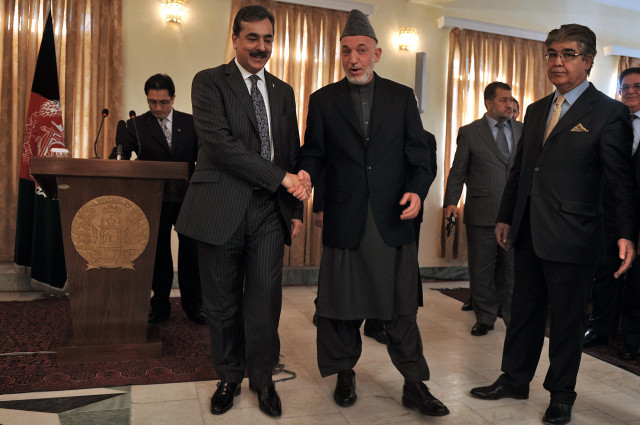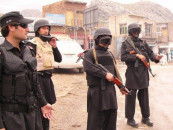Af-Pak policy: Islamabad scrambles to secure vital interests
Top govt officials vow to go all out to ensure their concerns are addressed.

“We will go all out to make sure that our concerns are addressed fully and properly,” a top political figure in the government said ahead of a key review by US President Barack Obama of what is referred to as ‘Af-Pak policy’ later this month.
The American president is set to reconsider options for Afghanistan where his troops are fighting what is often described as an unending war for the past nine years to prevail upon the Taliban militia that ruled the country between 1995 and 2001.
Top leaders from the North Atlantic Treaty Organisation (Nato) — a cluster of western nations participating in the Afghan battle — have recently set a 2014 deadline for pullout from the country but not before making sure that the locals are empowered to take control of security.
However, suspicions remain in Islamabad.
Authorities here believe there might be an abrupt pullout that can throw Afghanistan in the same chaos it went through in the latter half of the ’80s and early ’90s after Russian forces quit the country.
The issue was high on the agenda of the Defence Committee of the Cabinet last Friday that was chaired by Prime Minister Yousaf Raza Gilani and attended by all services chiefs.
The meeting of the panel that otherwise seldom holds such sessions comes amid a growing controversy involving leaked US diplomatic memos, suggesting Pakistani military and political leadership have been at odds on some crucial issues.
One of the participants told The Express Tribune the meeting concluded that revelations through WikiLeaks might be a ploy to put Pakistani authorities dealing with Afghanistan under pressure ahead of the Af-Pak review. But, he added, the decision was to put up a joint response by both the political and military leadership and that was demonstrated during Gilani’s visit to Kabul that started the following day.
Gilani was more than categorical at a joint news conference with Afghan President Hamid Karzai in Kabul on Saturday that the war on terror could not be won without Pakistan.
“That was just an indication as to how do we want to go about it in future…there would soon be more of such messages. They are directed to Washington,” the official added.
“The bottom line was that Afghanistan is our backyard. If it burns we will feel the heat…more than anybody else…we should never be bypassed or neglected in any decision,” another official said, describing what he termed a consensus among leaders in uniform and designers’ costumes.
The official insisted the decision of pursuing interests in the Afghan future plan with all available options was not ‘necessitated’ by shocking revelations in leaked documents. Rather, he added, it had added a little bit of ‘urgency’ to it.
Even before WikiLeaks emerged, there were signs that Pakistan’s powerful military establishment would never like to see a solution for Afghanistan that kept its players out of it.
Recently, in a rare background briefing to senior journalists military chief Ashfaq Parvez Kayani did not mince words to share his mindset that he believed Pakistan had been most ‘bullied’ of the US partners on war on terror.
According to the report, Kayani had handed over to Obama a 13-page set of demands Islamabad would want Americans to consider when they sit to review Af-Pak policy.
In another briefing to journalists some months back, Kayani said Pakistan’s security concerns in Afghanistan were India-centric, a country Islamabad believed Washington wanted to give a greater role to.
Asked what plan B would be if Islamabad’s concerns were not addressed in Obama’s new Af-Pak strategy, the official said: “At this point of time, we are hopeful of positive response. We are not looking at any other thing…and if at all it happens, then as Gilani said the war on terror can never be won without Pakistan.”
Published in The Express Tribune, December 6th, 2010.



















COMMENTS
Comments are moderated and generally will be posted if they are on-topic and not abusive.
For more information, please see our Comments FAQ